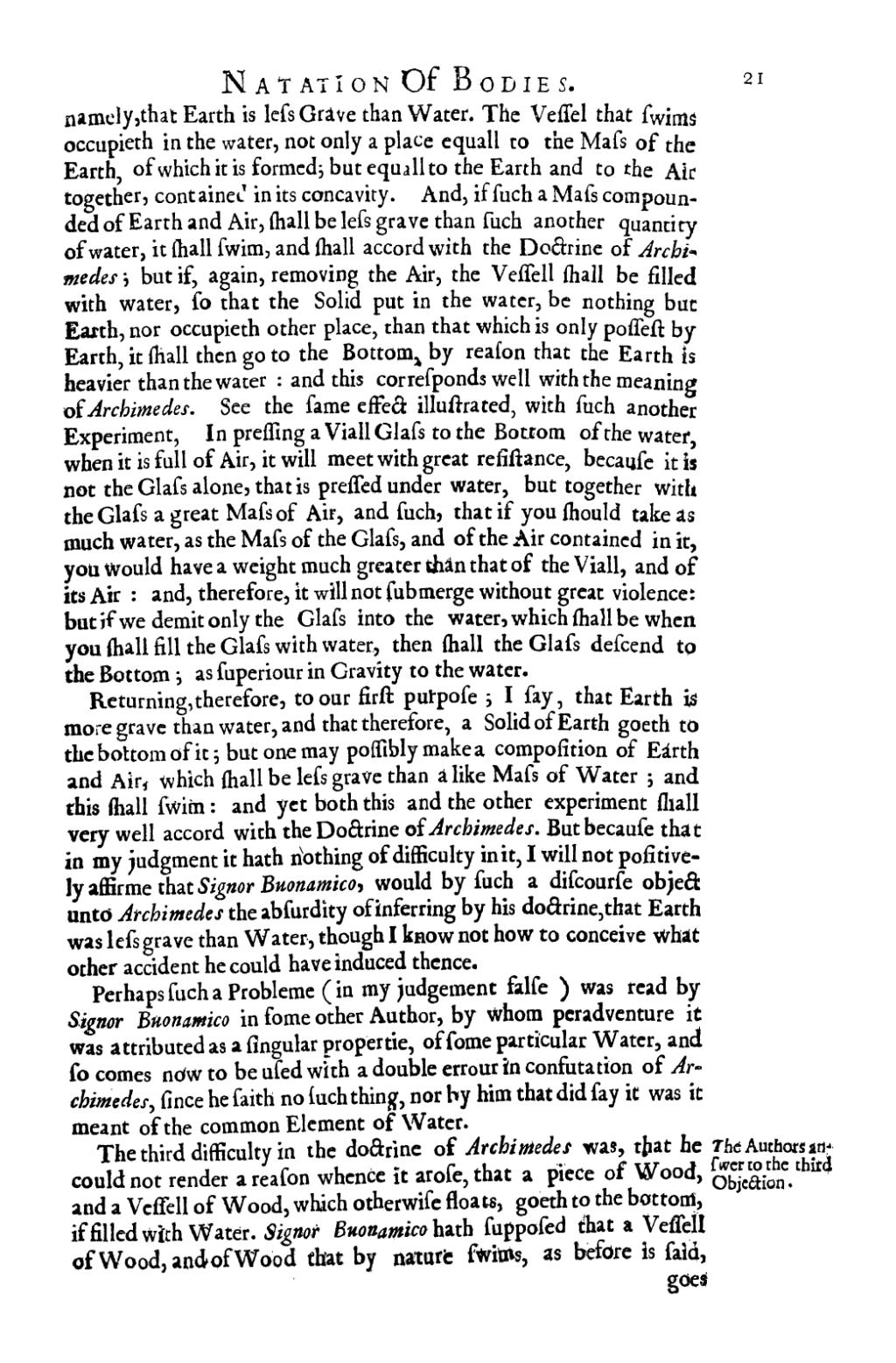namely, that Earth is less Grave than Water. The Vessel that swims occupieth in the water, not only a place equall to the Mass of the Earth, of which it is formed; but equall to the Earth and to the Air together, contained in its concavity. And, if such a Mass compounded of Earth and Air, shall be less grave than such another quantity of water, it shall swim, and shall accord with the Doctrine of Archimedes; but if, again, removing the Air, the Vessell shall be filled with water, so that the Solid put in the water, be nothing but Earth, nor occupieth other place, than that which is only possest by Earth, it shall then go to the Bottom, by reason that the Earth is heavier than the water: and this corresponds well with the meaning of Archimedes. See the same effect illustrated, with such another Experiment, In pressing a Viall Glass to the Bottom of the water, when it is full of Air, it will meet with great resistance, because it is not the Glass alone, that is pressed under water, but together with the Glass a great Mass of Air, and such, that if you should take as much water, as the Mass of the Glass, and of the Air contained in it, you would have a weight much greater than that of the Viall, and of its Air: and, therefore, it will not submerge without great violence: but if we demit only the Glass into the water, which shall be when you shall fill the Glass with water, then shall the Glass descend to the Bottom; as superiour in Gravity to the water.
Returning, therefore, to our first purpose; I say, that Earth is more grave than water, and that therefore, a Solid of Earth goeth to the bottom of it; but one may possibly make a composition of Earth and Air, which shall be less grave than a like Mass of Water; and this shall swim: and yet both this and the other experiment shall very well accord with the Doctrine of Archimedes. But because that in my judgment it hath nothing of difficulty in it, I will not positively affirme that Signor Buonamico, would by such a discourse object unto Archimedes the absurdity of inferring by his doctrine, that Earth was less grave than Water, though I know not how to conceive what other accident he could have induced thence.
Perhaps such a Probleme (in my judgement false) was read by Signor Buonamico in some other Author, by whom peradventure it was attributed as a singular propertie, of some particular Water, and so comes now to be used with a double errour in confutation of Archimedes, since he saith no such thing, nor by him that did say it was it meant of the common Element of Water.
The Authors answer to the third Objection.The third difficulty in the doctrine of Archimedes was, that he could not render a reason whence it arose, that a piece of Wood, and a Vessell of Wood, which otherwise floats, goeth to the bottom, if filled with Water. Signor Buonamico hath supposed that a Vessell of Wood, and of Wood that by nature swims, as before is said,